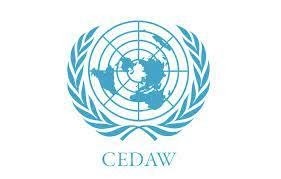Convention on the Elimination of All Forms of Discrimination Against Women (CEDAW) Shadow Reporting

The Convention on All Forms of Discrimination Against Women (CEDAW) and CEDAW Optional Protocol
(every 4 years)
The Convention on the Elimination of all Forms of Discrimination Against Women (CEDAW) is an international treaty adopted in 1979 by the United Nations General Assembly. Described as an international bill of rights for women, it was instituted on 3 September 1981 and has been ratified by 189 states. Australia signed CEDAW in 1983.
It is often described as the international bill of rights for women and sets out a comprehensive set of rights for women in civil, political, economic, social and cultural fields. It also provides a definition of discrimination against women
CEDAW Definition of Discrimination “…any distinction, exclusion or restriction made on the basis of sex which has the effect or purpose of impairing or nullifying the recognition, enjoyment or exercise by women, irrespective of their marital status, on a basis of equality of men and women, of human rights and fundamental freedoms in the political, economic, social, cultural, civil or any other field.” (Article 1)
The CEDAW Committee monitors the progress made by countries which have ratified or acceded to the Convention, in implementing CEDAW.
Australia signed the Optional Protocol to CEDAW in 2009.
The Optional Protocol to CEDAW allows individuals to make a communication to the CEDAW Committee about a violation of rights protected under CEDAW. The Optional Protocol also enables the CEDAW Committee to investigate claims of serious or systematic violations of CEDAW through an inquiry.
Australia’s Implementation of CEDAW
In signing CEDAW, Australia committed itself to being a society that promotes policies, laws, organisations, structures and attitudes that ensure women are guaranteed the same rights as men. The rights listed in CEDAW cover many aspects of women’s lives and relate to political participation, health, education, employment, housing, marriage, family relations and equality before the law.
Australia has developed many mechanisms for implementing the rights enshrined in CEDAW. The Sex Discrimination Act 1984 (Cth) (SDA) is one of the most important mechanisms.
Australia’s Reporting on CEDAW
A report to the CEDAW Committee on Australia’s implementation of the Convention is due to be presented every 4 years at the United Nations. Australia’s next report is due in 2022.
The Australian Government works with State and Territory Governments to prepare it’s report to the CEDAW Committee.
In addition to the Government report to CEDAW, Australian NGO’s work collaboratively to produce a Shadow Report which are also considered by the CEDAW Committee at the time of reporting.
The Australian Human Rights Commission provides both an independent report and oral evidence to the CEDAW Committee on the Australian Government’s implementation of its obligations under CEDAW.
Useful Links:
Australian Human Rights Commission - Independent Interim Report on CEDAW 31 August, 2021
Follow-Up NGO report regarding recommendations made to Australia by the CEDAW Committee in July 2018
